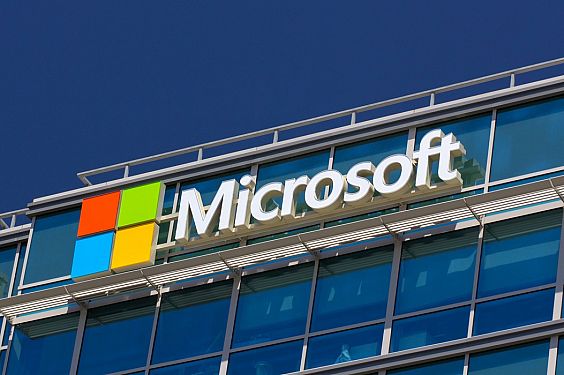Microsoft Puts Plans In Place To Combat Terrorist Content Online
Microsoft, Wednesday, May 25, 2016

Terrorist attacks around the world have sparked intense discussion and debate about how best to address content on the Internet that is used to promote terrorist violence or recruit for terrorist groups. We want to use this time to take new steps and outline how we are addressing this important issue. It’s inevitable – and understandable – that digital technology has become a focus of demands for new measures to combat terrorism. The Internet has become the primary medium for sharing ideas and communicating with one another, and the events of the past few months are a strong reminder that the Internet can be used for the worst reasons imaginable.
We believe it’s important that we ground our approach to this critical issue in central principles and values. We have a responsibility to run our various Internet services so that they are a tool to empower people, not to contribute, however indirectly, to terrible acts. We also have a responsibility to run our services in a way that respects timeless values such as privacy, freedom of expression and the right to access information. We’ve therefore carefully considered how to address terrorist content that may appear on our services without sacrificing the fundamental rights we all hold dear. Although Microsoft does not run any of the leading social networks or video-sharing sites, from time to time, terrorist content may be posted to or shared on our Microsoft-hosted consumer services. In light of this, we want to be transparent about our approach to combatting terrorist content.
We’re therefore addressing the issue in two ways, as described below. First we’re taking a number of measures to tackle this content when it appears on our services. Second, we’re investing in partnerships with others who are working to tackle the broader issue.
Microsoft’s services
Specifically, we are:
- Removing terrorist content: We are amending our terms of use – which already prohibit hate speech and advocacy of violence against others – to specifically prohibit the posting of terrorist content on our hosted consumer services.
- Defining terrorist content: There is no universally accepted definition of terrorist content. For purposes of our services, we will consider terrorist content to be material posted by or in support of organizations included on the Consolidated United Nations Security Council Sanctions List that depicts graphic violence, encourages violent action, endorses a terrorist organization or its acts, or encourages people to join such groups. The U.N. Sanctions List includes a list of groups that the U.N. Security Council considers to be terrorist organizations.
- Observing notice-and-takedown: We will continue our “notice-and-takedown” process for removal of prohibited, including terrorist, content. When terrorist content on our hosted consumer services is brought to our attention via our online reporting tool, we will remove it. All reporting of terrorist content – from governments, concerned citizens or other groups – on any Microsoft service should be reported to us via this form.
- Promoting free expression on Bing: Our Bing search engine strives to be an unbiased information and action tool, presenting links to all relevant information available on the Internet. (Like other search engines, Bing generally does not host content itself.) In the context of a tool for accessing information, we believe that societies, acting through their governments, ought to draw the line between free speech and limitations relating to particular types of content. Therefore, we will remove links to terrorist-related content from Bing only when that takedown is required of search providers under local law. (We are already operating this way in France, for example, where we are routinely provided by the police authority with links to terrorist-related content that is unlawful there.) We do believe, however, that we can help users make informed choices when they may be exposed to information that may cause them significant harm, including terrorist content. Therefore, we are exploring new partnerships with nongovernmental organizations (NGOs) to display public service announcements with links to positive messaging and alternative narratives for some search queries for terrorist material. We’re hopeful that these upcoming collaborations will help protect troubled individuals from heading down a path toward violence.
Partnering with others
While the steps we take on our own services are important, we are also thinking creatively about other ways to tackle this issue and investing in some new approaches and new partnerships in an effort to meet the challenges presented by terrorists’ use of the Internet:
- Leveraging new technologies: One challenge is that once a technology firm removes terrorist content, it is often quickly posted again. It is a game of “whack-a-mole,” but with serious consequences. We want to see if technology that has worked well in other circumstances can be used to good effect here. That’s why we are providing funding and technical support to Professor Hany Farid of Dartmouth College to develop a technology to help stakeholders identify copies of patently terrorist content. The goal is to help curb the spread of known terrorist material with a technology that can accurately and proactively scan and flag public content that contains known terrorist images, video and audio.
- Investing in public-private partnerships: We know that tackling these difficult issues will require new and innovative partnerships bringing together experts and leaders from different backgrounds and perspectives. To help with this, we’re a founding member and a financial sponsor of a new, public-private partnership to develop or enhance activities to help combat terrorist abuse of Internet platforms. Launched in April in Geneva, the initiative brings together the United Nations Counter-Terrorism Committee Executive Directorate, civil society, academics, and government and industry representatives, to address terrorist content.
- Providing additional information and resources: We appreciate that we can also work to enhance education and understanding, especially among young people. To help, we’re also adding new resources to the online safety program pages of our YouthSpark Hub, an important component of Microsoft’s YouthSpark initiative, which provides access to educational and economic information and opportunities for young people around the world. YouthSpark Hub provides resources for safer online socializing and tools to identify the risks and responsibilities of being good digital citizens. The new resources include material designed to help young people distinguish factual and credible content from misinformation and hate speech as well as tools for how to report and counter negative content. Experts say youth with more fully developed analytical and critical thinking skills are less likely to start down questionable paths, including those toward radicalization.
Terrorism is one of the truly urgent issues of our time. We are committed to doing our part to help address the use of technology to promote it or to recruit to its causes. As we look at additional measures we can take, our actions will always be consistent with the rule of law and with our belief in our users’ rights to privacy, freedom of expression and access to information. We will continue to work closely and transparently with a wide range of organizations to build on and strengthen these efforts, and we look forward to joining additional initiatives that involve organizations from both the public and private sectors in the coming months.
(11)














